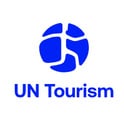President Joins UNWTO in Supporting Women Entrepreneurs in the Dominican Republic
Women entrepreneurs from across the tourism sector came together in Santo Domingo for a special workshop focused on financing, marketing, networking and innovation.
Forming part of UNWTO’s Centre Stage project and organized in partnership with the country’s Ministry of Tourism (MITUR), the one-day event saw around 200 female Dominican entrepreneurs share their experience and knowledge while also benefitting from expert insights into growing tourism businesses and making the sector a driver of gender equality and sustainable development.
Joining the entrepreneurs in a show of support, President of the Republic, Mr. Luis Abinader and the Minister of Tourism, Mr. David Collado, stressed the important role tourism is playing in the economic wellbeing of the country. The President singled out the opportunities being created in established tourism hubs like Punta Cana, as well as emerging destinations such as Pedregales.
As part of Centre Stage, MITUR has been working actively since November 2021 to implement policies that take into consideration the specific needs of women working in tourism. According to UNWTO research, women in tourism have been hit harder by the impacts of the pandemic than men working in the sector, emphasizing the need to incorporate a gender perspective into policymaking. The Centre Stage project is supported by the German Federal Ministry for Economic Development and Cooperation (BMZ), the Germany Agency for International Cooperation (GIZ) and UN Women.
About UN Tourism
The World Tourism Organization (UN Tourism), a United Nations specialised agency, is the leading international organisation with the decisive and central role in promoting the development of responsible, sustainable and universally accessible tourism. It serves as a global forum for tourism policy issues and a practical source of tourism know-how. Its membership includes 166 countries, 6 territories, 2 permanent observers and over 500 Affiliate Members from the private sector.
Media enquires: [email protected]
UN Tourism Communications Department
+34 91 567 8100
UN Tourism
